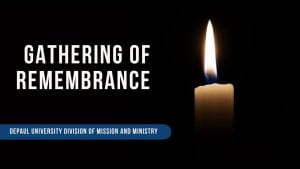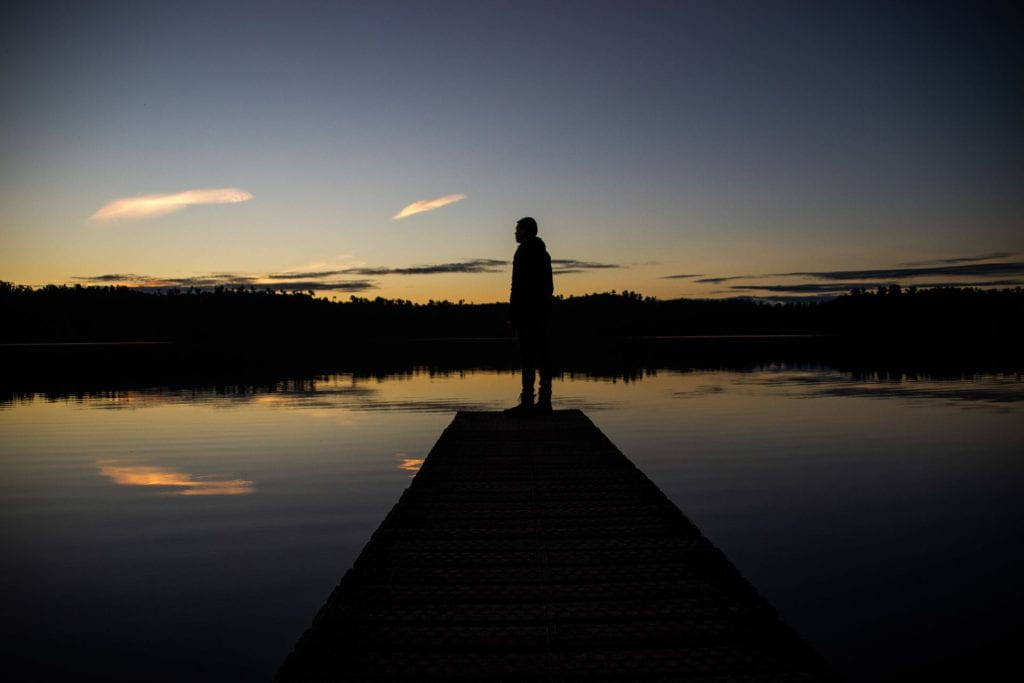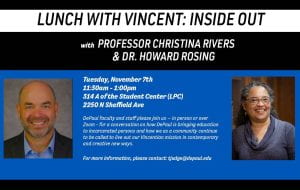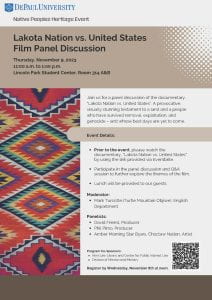
When the world feels bleak, I worry that I’m not doing enough. How can I justify my comfortable life when migrants are sleeping on the floors at Chicago police stations? Shouldn’t I show up to more protests and direct actions? How can I be in solidarity? What must be done? In response, I often ask myself: What would Dorothy Day do?
If you are not familiar with Dorothy, I encourage you to read about her life and the Catholic Worker movement that she co-founded in 1933, ninety years ago. Many people know the highlights. She was a leftist and a journalist, a young woman living in New York City during a time of political transformation. She converted to Catholicism, met an itinerant French intellectual named Peter Maurin, and they founded the Catholic Worker movement. Dorothy started the Catholic Worker, a newspaper about labor, capitalism, and more—all through a Catholic lens. When hungry people began showing up at the newspaper’s office, Dorothy and her collaborators fed them. This work is still going on today. In 2023, Catholic Worker houses of hospitality around the world blend radical social action and mutual aid.
I have lived in two Catholic Worker houses, and through her writing, Dorothy became my constant companion. When I lived there, I sorted clothing donations, prayed vespers, gave out toothbrushes, and went to round table discussions about sociopolitical issues. I played mahjong and scrabble with guests, rescued cats, distributed food to free fridges on the streets, and risked arrest to protest a tar sands pipeline. Dorothy’s writings kept me grounded in personalism and solidarity.
Young people have always gone to the Catholic Worker, seeking an experiential education that they didn’t find in the classroom. Some dropped out of prestigious universities to devote themselves to a countercultural lifestyle. Others moved into houses of hospitality after graduation. Dorothy embraced education in its most expansive sense. She understood that, among other things, the movement was becoming an alternative school for young adults. She and Maurin imagined a cross-class community in which workers would become scholars and scholars would become workers. Dorothy herself was a college drop-out; she left the University of Illinois Urbana-Champaign in her second year. (She did finish high school right here in Lincoln Park, where she spent part of her childhood.) Dorothy spoke at colleges and universities, and she developed a deep knowledge of literature and the arts. However, she—rightly, in my view—knew that learning transcended the classroom.
In my role at DePaul, I get to introduce students to Dorothy Day. As coordinator of the Service Immersion Program, I bring students to houses of hospitality. Last spring, I took eight DePaul students to St. Francis House, the Catholic Worker house in Uptown. I left that conversation reinvigorated. The students asked wonderful questions about voluntary poverty, technology, mutual aid, and the logistics of hospitality. This experiential learning is in DePaul’s DNA, naturally flowing from our Vincentian mission. By introducing students to Dorothy and other Catholic Workers, I am giving them tools that have helped me wrestle with tough questions about justice and privilege. I commit to keep asking myself those tough questions, to question, unlearn, and learn alongside my students.
November is the month when many Christians remember the dead through the commemoration of All Saints Day and All Souls Day. For Catholic Workers, it is also a month when we remember the life and witness of Dorothy Day. She was born on November 8, 1897, and died on November 29, 1980. During this month when the veil between the living and the dead draws thin, I remember a woman who has shaped my life even though I never met her.
If you’d like to learn more, From Union Square to Rome is a good introduction to Dorothy’s writings. I’ve also heard good things about D.L. Mayfield’s new biography, Unruly Saint. To get a pulse on the contemporary Catholic Worker movement, you can subscribe to the newspaper. The masthead still proclaims that it sells for a penny a copy.
Catholics believe that “there is no time with God.” This means that our relationships with the dead are real and powerful. This November, I invite you to enter into relationship with Dorothy across space and time. You don’t need to be a young adult to become a student of the movement. As we live through uncertainty, we must remember to call on the crowd of witnesses, the saints who can show us how to live, work, and be together.
Reflection questions:
- How do you continue to learn and grow outside the classroom?
- Who are the saints and ancestors who guide you in challenging times?
Reflection by: Abigail Rampone, Ministry Coordinator for Vincentian Service and Immersions

 Winter Clothing and Blanket Drive
Winter Clothing and Blanket Drive


 Patricia Corinne McMahon, the mother-in-law of Susan McMahon of the Psychology Department, passed away on November 6, 2023 at the age of 89.
Patricia Corinne McMahon, the mother-in-law of Susan McMahon of the Psychology Department, passed away on November 6, 2023 at the age of 89. David Frank Dvorak, the brother of Susan McMahon of the Psychology Department, passed away on October 19. 2023 at the age of 62, after a brief illness.
David Frank Dvorak, the brother of Susan McMahon of the Psychology Department, passed away on October 19. 2023 at the age of 62, after a brief illness.


 Day with Vincent Retreat: Save the Date
Day with Vincent Retreat: Save the Date
 Rommie Khalifeh, the son of faculty member Jumana Khalifeh of the College of Liberal Arts and Social Sciences, Sociology, passed away on October 30, 2023 at the age of 29. He is survived by his parents, Bassam and Jumana, siblings Rana and Jenna. Rommie graduated from DePaul in 2016 with a Bachelor’s degree in Accounting and completed Law School at UIC in 2019. Services were held on November 5 at Donnellan Family Funeral Home.
Rommie Khalifeh, the son of faculty member Jumana Khalifeh of the College of Liberal Arts and Social Sciences, Sociology, passed away on October 30, 2023 at the age of 29. He is survived by his parents, Bassam and Jumana, siblings Rana and Jenna. Rommie graduated from DePaul in 2016 with a Bachelor’s degree in Accounting and completed Law School at UIC in 2019. Services were held on November 5 at Donnellan Family Funeral Home.



